- Home
- Philip Pullman
The Scarecrow and His Servant Page 4
The Scarecrow and His Servant Read online
Page 4
“Birds,” he said very sternly, “I accept that a state of war exists between your kingdom and me, but there is such a thing as justice. To see you imprisoned in this cruel way makes the blood rush to my turnip with indignation. I am going to set you free, and I charge you on your honor to go straight home and not eat any farmer's grain on the way.”
Jack didn't notice what his master was doing, because he'd spotted an old man sitting at a stall selling umbrellas. He was too rheumaticky to run over to the theater with everybody else, and he was pleased to sell one of his umbrellas to Jack. He paid with a gold coin he'd found in the brig-ands' bag.
Then someone shouted, “Stop, thief! Get away from my birds!”
Jack turned around to see the Scarecrow opening the last of the cages. A flock of little birds was wheeling around his head, chirping merrily, and he was waving his one arm, the one that pointed nowhere.
“Fly!” he shouted. “Fly away!”
“Come on, master!” called Jack. “They're all after us now!”
And he dragged the Scarecrow away, and the two of them fled as fast as they could. The cries of anger, the shouts of laughter, the full-throated singing of the liberated birds all gradually faded behind them.
When they reached the open country again, they stopped. Jack was out of breath. The Scarecrow was looking at himself, trying to work out what was wrong, and then he cried, “Oh no! My other arm's gone! I'm falling to pieces!”
“Don't worry, master, I've thought of that. I bought you a new arm—look,” said Jack, and he slipped the umbrella up the Scarecrow's sleeve, handle first.
“Good gracious,” said the Scarecrow. “I do believe—I think I—yes, yes, I can! Look at this! Just look at this, Jack!”
And he shook his new arm, and the umbrella opened. His great turnip face, with its bright red mouth and black-rimmed eyes, was radiant.
“Aren't I clever!” he said, marveling. “Look at the ingenuity of it! It goes up—it comes down—it goes up—it comes down—”
“You can keep the sun off us, master,” said Jack. “And the rain.”
The Scarecrow looked at him proudly. “You'll go a long way, my boy!” he said. “I was going to think of those things in a minute, but you beat me to it. And what a triumph we had on the stage! We saw everything they said on the poster.”
“We didn't have the Shipwreck, though, or the Eruption of Vesuvius.”
“Oh, we will, Jack,” said the Scarecrow confidently. “I'm sure we will.”
Chapter Five
Scarecrow for Hire
When the lawyer reached the town next morning, he found it full of strange rumors. After interviewing Mr. Rigatelli and the actress who played Queen Dido, who were both convinced that the Scarecrow was an automaton controlled by mesmeric waves as part of a plot organized by a rival theater company, Mr. Cercorelli found his way to the elderly umbrella salesman.
“Yes, I seen it all,” said the old man. “It was a boy with a horan-gutang. I seen one of 'em before. They live in the trees in Borneo. Almost human they are, but you wouldn't mistake him close up. What d'you want him for? Has he escaped from a zoo?”
“Not exactly,” said Mr. Cercorelli. “Which way did they go?”
“That way,” said the old man, pointing. “You'll recognize 'em easy enough. They bought one of my umbrellas.”
The Scarecrow and his servant walked a long way that day. They spent the night under a hedge by an olive grove, and the moment they woke up, Jack knew something was wrong.
He sat up and looked all around. The sun was shining, the air smelled of thyme and sage, there was the sound of little bells around the necks of a herd of goats browsing nearby; but something was missing.
“Master! Wake up! Our bag's been stolen!” Jack cried in despair as soon as he realized what had happened. “All the food's gone!”
The Scarecrow sat up at once, and opened his umbrella with alarm. Jack was lifting stones, peering under the hedge, and running backward and forward to look up and down the road.
The Scarecrow peered into the ditch, frowning at a lizard. It took no notice. Then he bent over and looked at something among the leaves.
“A clue!” he called, and Jack came running.
“What, master?”
“There,” said the Scarecrow, using his pointing hand to indicate something small and unpleasant at his feet.
“What is it?”
“An owl pellet. You can take it from me, this was left by the culprit. No doubt about it, the thief is an owl.”
“Oh,” said Jack, scratching his head.
“Or a jackdaw,” the Scarecrow went on. “In fact, now I think of it, it must have been a jackdaw, and he left the owl pellet to throw us off the scent. Can you believe the villainy of these birds! They have no shame.”
“No,” said Jack. “None at all. Anyway, we haven't got any money, and we haven't got any food. I don't know what we're going to do.”
“We shall have to work for our living, dear boy,” said the Scarecrow cheerfully. “But we are full of enterprise and both in the pink of health. Ow! Ow! What are you doing?”
His last words were spoken to a goat, which had come up behind him and started to make a meal of his trousers.
The Scarecrow turned and clouted the goat with his road sign. But the goat objected to this and butted him hard, knocking him over before Jack could catch him. The Scarecrow was astonished.
“How dare you! What a cowardly attack!” he said, struggling up.
The goat charged him again. This time the Scarecrow was prepared. He opened his umbrella suddenly, and the goat skidded to a halt and started to eat that instead.
“Oh, really,” said the Scarecrow, “this is too much!”
And then a tug-of-war began, with the goat at one end and the Scarecrow at the other. The rest of the goats came over to see what was happening, and one of them started nibbling at the Scarecrow's coat, another at his trousers, and a third began to browse on the straw coming out of his jacket.
“Go on! Scram! Clear off!” Jack shouted, clapping his hands, and reluctantly the goats slouched away.
“You expect that sort of behavior from people with feathers,” the Scarecrow said severely, “not people with horns. I'm very disappointed.”
“They were taking a consuming interest in you, master,” said Jack.
“Well, you can't blame them for that,” said the Scarecrow, brushing his lapels and shaking out the remains of his coat. “But I must say, Jack, they shouldn't be allowed out without a goatherd. We shan't let that happen in Spring Valley.”
“Spring Valley? Oh, I remember. How did you manage to get a big estate, all full of—what was it— a farm and streams and wells and so on?”
“Well, it's a puzzle, Jack,” the Scarecrow admitted as they set off along the road. “I've always had an inner conviction that I was a man of property. A sort of gentleman farmer, you know.”
“And is that where we're going, Spring Valley?”
“In good time, Jack. We have to make our fortunes first.”
“Oh, I see. Well, look,” said Jack, pointing ahead of them, “there's a farm and a farmer. Let's go and ask him for a job. That'll be a start.”
The farmer was sitting disconsolately outside his house, sharpening a scythe.
“You want a job?” he said to Jack. “You couldn't have come at a better … you know. The soldiers took all my, umm, away, and the birds are eating the, er, as fast as it comes up. You set up your, that, him, in the top field, and you can take the rattle and work in the orchard.”
“The thing is,” said Jack, “he's getting a bit tattered. If you had a spare pair of trousers, he'd look a lot more realistic.”
“There's a dirty old pair of, umm, you know, in the woodshed. Help yourself. There'll be a bite to, er, at sunset, and you can sleep in the barn.”
Soon afterward, they were at work. The Scarecrow shooed away all the birds from the cornfield, and from time to time he opened and s
hut his umbrella, just to teach them a lesson. Jack roamed up and down the orchard, rattling hard whenever he saw a finch or a linnet.
It was hard work. The sun was hot, and there were plenty of birds to scare. Jack found himself thinking about Spring Valley, and the Scarecrow's great estate. The poor noodle must have made it up and found himself believing it, Jack thought. He was good at that. It sounded like a nice place, though.
At sunset Jack stopped rattling and went to call the Scarecrow in. His master was very impressed by the rattle.
“Formidable!” he said when Jack showed him how it worked. “What a weapon! I don't suppose I could use it tomorrow?”
“Well, if you do, master, I won't have anything to scare the birds with. You're an expert, and you can do it just by looking at them, but I need all the help I can get. Now you go and sit down in the barn, and I'll fetch us some supper.”
The farmer's wife gave Jack a pot of stew and a big hunk of bread and told him not to come in the kitchen with that monster of his. Newfangled bird-scarers were all very well, but this was a respectable farm, and she couldn't be doing with mechanical monsters in the house.
“Righto, missus,” said Jack. “Any chance of a drink?”
“There's a bucket in the well,” she said, “and a tin cup on a string next to it.”
“Thank you,” said Jack, and took his pot of stew to the barn, pausing for a good long swig of water on the way.
But before he went into the barn, he stopped outside, because he could hear voices.
“Oh yes,” the Scarecrow was saying, “we fought off a dozen brigands, my servant and I.”
“Brigands?” said someone else. It was a female voice, and it was full of admiration.
Jack walked in to find the Scarecrow sitting on a bale of straw, surrounded by a dozen rakes and hoes and broomsticks and spades and pitchforks. They were all leaning on the wall, listening respectfully.
At least that's what it looked like until they realized Jack was there. Then they went back to looking like rakes and hoes and so on.
“Ah, Jack, my boy!” said the Scarecrow.
“The farmer's wife gave me a bowl of stew for us,” said Jack doubtfully, looking around.
“You have most of it,” said the Scarecrow. “I don't eat a great deal. A small piece of bread will be quite sufficient.”
So Jack sat down and tucked into the stew, which was full of peppers and onions and bits of gristly sausage.
“I thought I heard voices, master,” he said with his mouth full.
“And so you did. I was just telling these ladies and gentlemen about our adventures.”
Jack looked around at the rakes and hoes and brooms. None of them moved or said a word.
“Ah,” said Jack. “Right.”
“As I was saying,” the Scarecrow went on, “the brigands were a fearsome crew. Armed to the teeth, every single one. They trapped us in their cave and—”
“I thought you said it was a ruined castle,” said a rake.
“That's right, a ruined castle,” said the Scarecrow cheerfully.
Jack's hair was standing on end. It certainly seemed as if one of the rakes had spoken, but it was getting dark, and he was very tired. He rubbed his eyes and felt them closing as fast as he could rub them open again.
“Well, which?” demanded the rake.
“Castle. Next to a cave. My servant and I went in to investigate, and the next thing we knew, in came two dozen brigands. Or three dozen, probably. I hid in the corner, and Jack told them a story to send them to sleep, and then I loomed up like an apparition—like this—”
The Scarecrow raised his arms and made a hideous face. Some of the smaller brooms flinched away, and a little fork squeaked in terror.
“And the brigands turned tail and fled,” the Scarecrow went on. “I've thought about it since, and I've worked out the reason why. I think they were birds, and they were only disguised as brigands. Big birds,” he explained. “Sort of ostrich-sized. Very dangerous,” he added.
“You must be very brave,” said a broom shyly.
“Oh, I don't know,” said the Scarecrow. “One gets used to danger in this line of work. But soon after that, I entered a new profession. I went on the stage!”
Jack was lying down now. The last thing he noticed before he fell asleep was the Scarecrow beginning to act out the role he had taken in the play; only it seemed a much more important role than Jack remembered, and when it got to the point where Queen Dido fell in love with the Scarecrow and made him Prime Minister, Jack realized he'd been asleep for some time.
He woke up to find the sun in his eyes and the Scarecrow shaking him.
“Jack! Wake up! Time for work! The birds have been up for some time. But, Jack—I need to have a word with you. In private.”
Jack rubbed his eyes and looked around.
“We are in private,” he said.
“No! I mean more private,” the Scarecrow said in an urgent whisper. “Away from—you know …”
He gestured over his shoulder and nodded backward in a meaningful way.
“Ah, I see,” said Jack, who had no idea what he was talking about. “Just give me a moment, and I'll meet you out by the well, master.”
The Scarecrow nodded and strode out of the barn. Jack scratched his head. The rakes and hoes and brooms were perfectly still and silent.
Must have been dreaming, Jack said to himself, and got up.
The farmer's wife gave him some bread and jam for breakfast, and Jack took it out to the well, where the Scarecrow was waiting impatiently.
“What is it, master?” he said.
“I've decided to get married,” the Scarecrow told him. “As a matter of fact, I've fallen in love. Oh, Jack, she's so beautiful! And such a delicate nature! You'd never believe it, but I feel almost clumsy beside her. Her grace! Her charm! Oh, my heart is lost, I love her, I worship the ground she brushes!”
“Brushes?” said Jack, his mouth full.
“She's a broom,” the Scarecrow explained. “You must have noticed her. The very pretty one! The lovely one! Oh, I adore her!”
“Have you told her?”
“Ah. That's what I was going to tell you. I haven't got the nerve, Jack. My courage fails me. As soon as I look at her I feel like a—like a—like an onion.”
“An onion?”
“Yes, just like an onion. But I can't think of a thing to say. So you'll have to tell her.”
Jack scratched his head.
“Well,” he said, “I'm not as eloquent as you are, master. I'd probably get it all wrong. I'm sure she'd rather hear it from you.”
“Well, of course she would,” agreed the Scarecrow. “Anyone would. But I'm struck dumb when I see her, so it'll have to be you.”
“I don't understand why you feel like an onion,” Jack said.
“No, neither do I. I had no idea that love would have that effect. Have you ever been in love, Jack?”
“I don't think so. If I fell in love, I'd probably feel like a turnip. Listen, I tell you what, master—”
“I know! You could pretend to be a bird and attack her, and I could pretend to come and fight you off. I bet she'd be impressed by that.”
“I'm not a good actor like you, master. She'd probably guess I wasn't a real bird. Listen, let's go and do some work, and you can think about her all day long, out in the cornfield. We'll talk about it later, before we come in.”
“Yes! That's a good idea,” said the Scarecrow, and marched off proudly to start the day's work.
Chapter Six
A Serenade
Jack worked hard all morning. At midday the farmer came into the orchard to see how he was getting on, and looked around approvingly.
“That other fellow,” he said, “your mate—”
“My master,” said Jack.
“As you like. Him. He's a good worker, and no mistake. But … well … you know.”
“Oh, he's good at scarecrowing,” said Jack.
“No doubt about it. But—umm—he's a bit, er, well, isn't he?”
“Only if you don't know him.”
“Oh, is that right? Then he's … mmm … is he?”
“He's a deep character,” said Jack, rattling at a blackbird.
“Ah,” said the farmer. “Thing is, he looks almost—well, if I didn't know better, I'd even say … you know.”
“That's part of his cleverness. See, when he's working, he never … kind of thing.”
“No,” said the farmer. “Wouldn't do to … umm.”
“I mean, there'd be no end of a—you know.”
“Too true. You're right there. All the same, eh? I mean …”
“Yes,” agreed Jack. “No. It'd be terrible if … er.”
“A word to the wise, eh?” said the farmer, and winked and tapped the side of his nose. Jack did the same, in case it was the private signal of a secret society. The farmer nodded and went away.
Well, it's a good thing he didn't go and say all that to the master, Jack thought. The poor ninny wouldn't have understood a word.
He rattled away busily all afternoon, and as the sun was setting, he went to call the Scarecrow from the top field.
“Jack,” said the Scarecrow, “I've been thinking about her all day long, just as you suggested, and I've come to the conclusion that if she won't marry me, I'll have to do something desperate.”
“Oh, dear,” said Jack. “What would that be, master?”
“I'm saving that till tomorrow to think about.”
“Good idea. I wonder what's for supper?”
The farmer's wife gave them another bowl of stew, and she gave the Scarecrow a long hard suspicious look, too, which he didn't see, because he was gazing at the barn with a dopey expression on his turnip.
“Thank you, missus,” Jack said.
“You mind you keep him locked up at night,” said the farmer's wife. “I don't like the look of him. If I find any hens missing …”
Jack and his master sat down beside the well, and once again the Scarecrow let Jack have all the stew and only nibbled at a piece of bread.
“You ought to eat something, master,” said Jack. “I bet she'd like you just as much if you had a full belly. You'd feel better, anyway.”

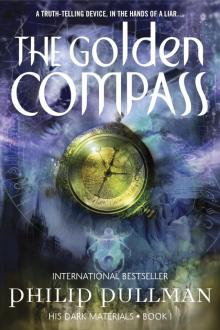 The Golden Compass
The Golden Compass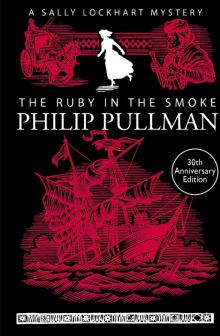 The Ruby in the Smoke
The Ruby in the Smoke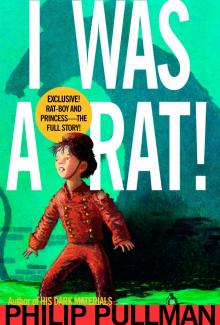 I Was a Rat!
I Was a Rat!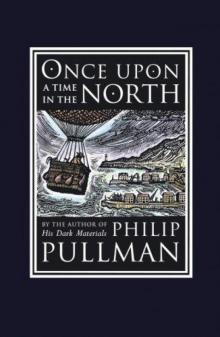 Once Upon a Time in the North
Once Upon a Time in the North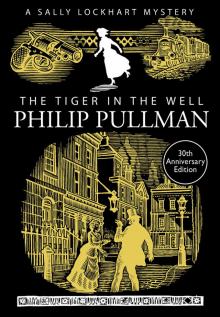 The Tiger in the Well
The Tiger in the Well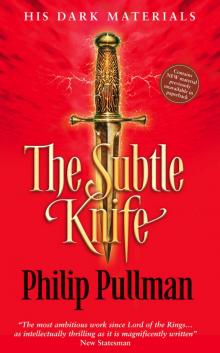 The Subtle Knife
The Subtle Knife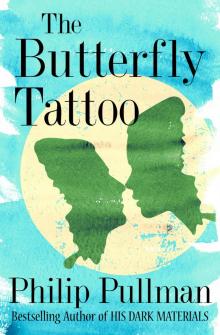 The Butterfly Tattoo
The Butterfly Tattoo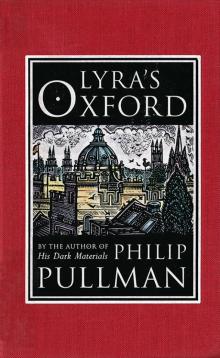 Lyra's Oxford
Lyra's Oxford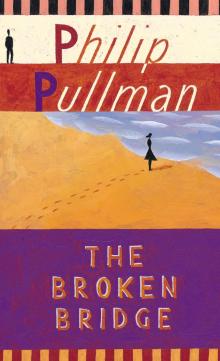 The Broken Bridge
The Broken Bridge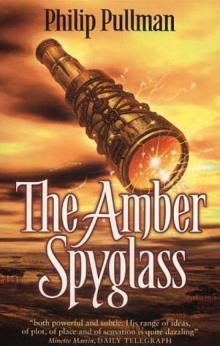 The Amber Spyglass
The Amber Spyglass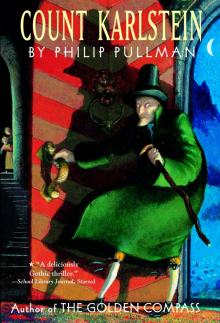 Count Karlstein
Count Karlstein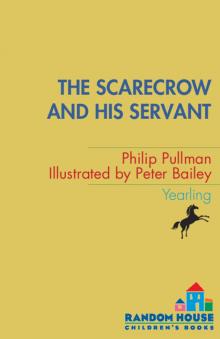 The Scarecrow and His Servant
The Scarecrow and His Servant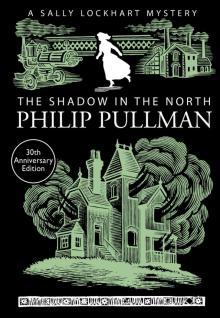 The Shadow in the North
The Shadow in the North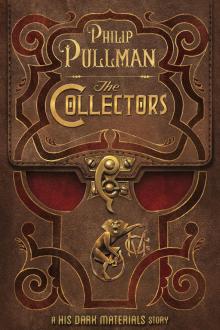 The Collectors
The Collectors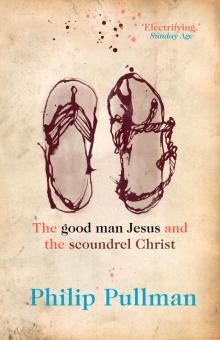 The Good Man Jesus and the Scoundrel Christ
The Good Man Jesus and the Scoundrel Christ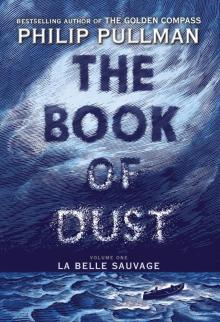 La Belle Sauvage
La Belle Sauvage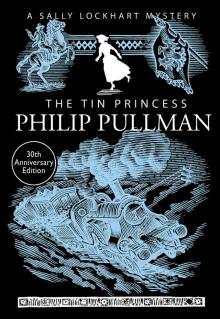 The Tin Princess
The Tin Princess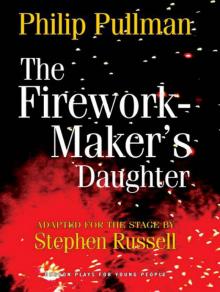 The Firework-Maker's Daughter
The Firework-Maker's Daughter The Book of Dust: The Secret Commonwealth (Book of Dust, Volume 2)
The Book of Dust: The Secret Commonwealth (Book of Dust, Volume 2)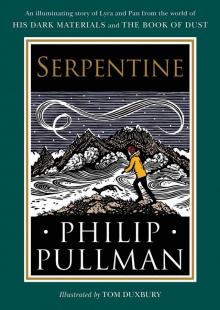 Serpentine
Serpentine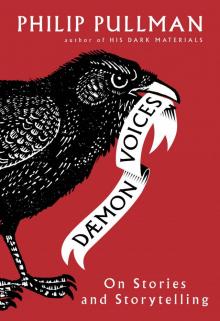 Daemon Voices
Daemon Voices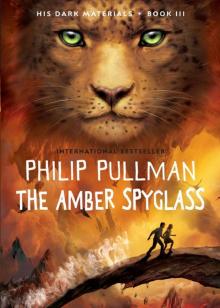 The Amber Spyglass: His Dark Materials
The Amber Spyglass: His Dark Materials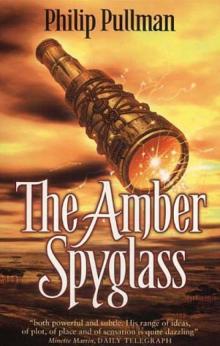 The Amber Spyglass hdm-3
The Amber Spyglass hdm-3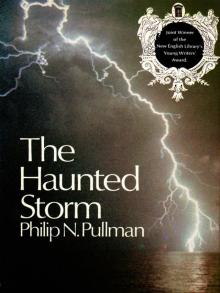 The Haunted Storm
The Haunted Storm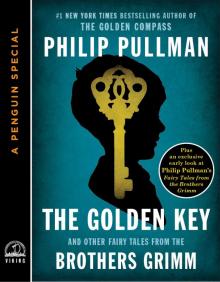 The Golden Key
The Golden Key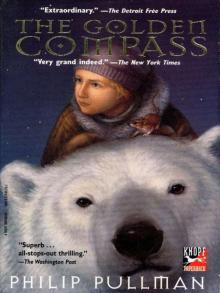 His Dark Materials 01 - The Golden Compass
His Dark Materials 01 - The Golden Compass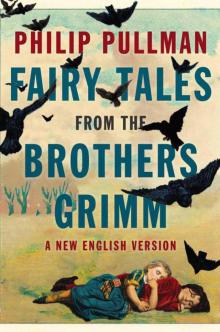 Fairy Tales from the Brothers Grimm: A New English Version
Fairy Tales from the Brothers Grimm: A New English Version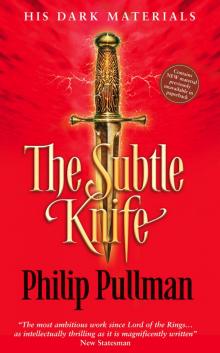 His Dark Materials 02 - The Subtle Knife
His Dark Materials 02 - The Subtle Knife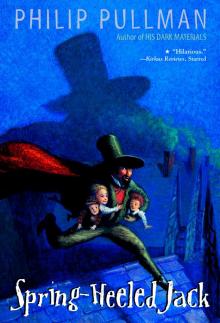 Spring-Heeled Jack
Spring-Heeled Jack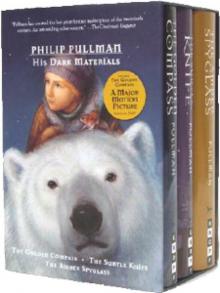 The Golden Compass hdm-1
The Golden Compass hdm-1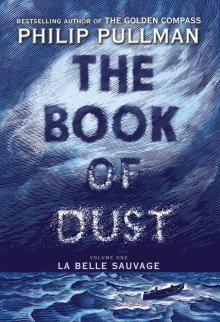 The Book of Dust, Volume 1
The Book of Dust, Volume 1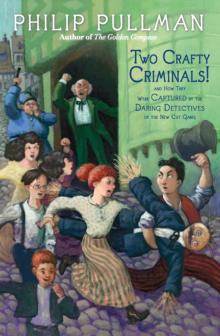 Two Crafty Criminals!
Two Crafty Criminals!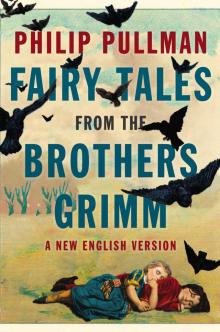 Fairy Tales from the Brothers Grimm
Fairy Tales from the Brothers Grimm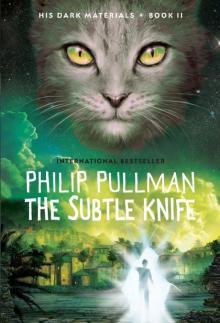 The Subtle Knife: His Dark Materials
The Subtle Knife: His Dark Materials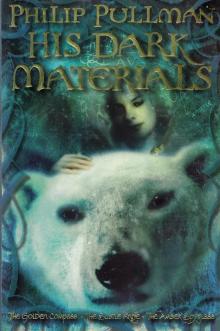 His Dark Materials Omnibus
His Dark Materials Omnibus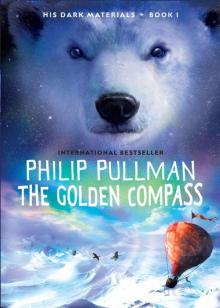 The Golden Compass: His Dark Materials
The Golden Compass: His Dark Materials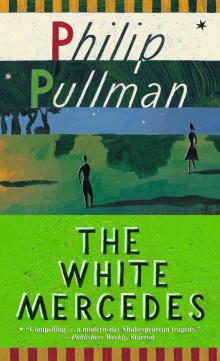 The White Mercedes
The White Mercedes